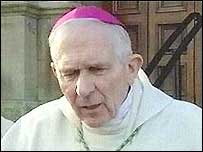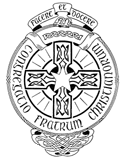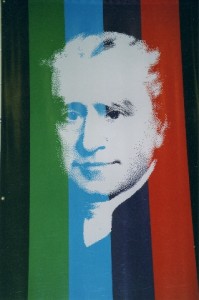 HOMILY PREACHED BY MOST REVEREND PATRICK WALSH AT
HOMILY PREACHED BY MOST REVEREND PATRICK WALSH AT
MASS FOR THE LAY TRUSTEES, GOVERNORS AND STAFF
OF THE EDMUND RICE SCHOOLS
IN ST. MARY’S UNIVERSITY COLLEGE
8th MARCH 2011
_________
At the request of the Irish Bishops, John Henry Newman came to Ireland in 1851 to establish a Catholic University. Newman was passionate about education, Catholic education, which he considered to be the foundation of the renewal of the Catholic Church in England, the seed bed for the flowering of ‘the Second Spring’.

Blessed John Henry Newman aged 25
We inevitably associate Newman’s passion for education with University education but he was equally passionate about Catholic schools, schools to be established in Birmingham, London, Oxford and when he came to Ireland he would without doubt have learned about an Irishman, Edmund Ignatius Rice, equally passionate about Catholic education who had died in 1844 just seven years before Newman’s coming. You are all familiar with the story of Blessed Edmund Rice, the successful business man who was so concerned for the education and the health of the poor children of Waterford, recognising how essential education was and would be for their wellbeing, both spiritual and material.
In the context our gathering today it is very relevant to remember that Blessed Edmund Rice’s work for the education of the poor began as a lay man, a lay man with a real social conscience, a married man, a man of deep spirituality who after his wife’s death decided that he should, with the others who had joined him, form a new religious institution devoted to Catholic education and the establishment of Catholic schools.
The 19th and 20th centuries are glorious chapters in the history of Catholic education, spearheaded by the Irish Christian Brothers here in Ireland and then in diverse parts of the English speaking world. They were centuries of rapid, social, economic and political change – changes which affected the Church; for the Church, while not of the world, is very much in the world. And at the beginning of this 21st century these changes are occurring with a frightening rapidity and purpose which is taxing and challenging the Church in so many aspects of its ministry. And Catholic education and Catholic schools are certainly not exempt.
How is the Church to respond? The answer lies to a very great extent in the full acceptance and implementation of the Second Vatican Council, the putting into effect of its ecclesiology, the role of the people of God, of all the people of God, and especially of the lay faithful who share in the priesthood of Christ.
The lay faithful are in the world, they are the Church in the world, they have their vital place in the mission of the Church. This was understood and forcefully expressed by Blessed John Henry Newman a hundred years before the Council and we can say that it was lived by the layman, Blessed Edmund Ignatius Rice 160 years before the Council.
And so the establishment of ERST is totally in harmony with Church teaching, it is a response, under the guidance of the Holy Spirit, to the demands and the challenges facing Catholic education at this time in our history. As the Archbishop of Dublin said in his recent Cambridge address “the schools managed by the new trusts may in fact be becoming more Catholic through greater lay participation”.
Those whose overriding aim is to secularise society and to promote the liberal agenda must, as a very necessary prerequisite in order to attain their ends, get a grip on the education system – and Catholic schools are the first target in their sights. Catholic education is a bulwark which must be demolished.
For us it must not be simply a question of defending Catholic Schools, manning the barricades, but presenting positively and cogently the philosophy of Catholic education. You here today as the trustees of ERST, and the governors, principals and senior management of the individual schools within the trust hold privileged responsible positions in the continuing flowering and strengthening of the Christian Brothers’ Schools and in presenting the philosophy of Catholic education in tangible terms to those outside the Church and indeed nowadays to very many within the Church.
It is important that we are clear on the rights and duties of trustees, governors, principals and senior management. These are clearly spelled out in the new National Directory for Catechetics in Ireland published just last month by the Irish Episcopal Conference and you will be aware that our own Commission on Catholic Education comprising trustee representatives of our schools is working towards a common Scheme of Management for all our schools – with the necessary variations to reflect the characteristic spirit of each school. The common Scheme of Management must clearly state the rights and duties of trustees, governors and principals. [As an aside may I also say how concerned we are with the proposed ESA legislation, especially in regard to employment of all staff in schools]
Each of you here holds a position of trust. Each of you has been entrusted with something special, entrusted with a treasure, the treasure of Catholic education.
In the words of Our Lord in the Gospel today “when a man has had a great deal given him, a great deal will be demanded of him; when a man has had a great deal given him on trust, even more will be expected of him”.
Adapting words of St. Paul – each of you has particular talents, particular expertise, particular gifts from God, your own share in Christ’s grace and you are using these various gifts, God’s gifts, generously “in unity, in the work of service, building up the Body of Christ”, that part of the Body of Christ which is the school in your trust.
 The motto of your schools is “Facere et docere” – To do and to teach. The fundamental task of every school, of every teacher, is to teach, to teach the pupils how to learn, how to search for what is true in the various disciplines – in history, literature, the sciences, mathematics and religion – and this search is deeper and more demanding than surfing the net for facts and information. And it is a search which does not end with A-levels or degrees – it is a lifelong search.
The motto of your schools is “Facere et docere” – To do and to teach. The fundamental task of every school, of every teacher, is to teach, to teach the pupils how to learn, how to search for what is true in the various disciplines – in history, literature, the sciences, mathematics and religion – and this search is deeper and more demanding than surfing the net for facts and information. And it is a search which does not end with A-levels or degrees – it is a lifelong search.
That search for what is true is common to all teaching but its thrust should be distinctive in a Catholic school. For all searching for truth must lead to the ultimate truth which is to be found in the person of Jesus Christ, who is “The Truth”.
The theme of our Catholic Schools Week this year was “Catholic Schools rooted in Jesus Christ”. Jesus Christ must be the centre, the root, of all our Catholic educational enterprise.
Keeping our minds focussed on that centre will not be easy given the constantly changing day-in, day-out demands on schools and on teachers today. For so many in public life, and even for some educationalists, education is not an end in itself, it must adapt itself to the needs of the economy, it must be consumer led. Education is for careers, for jobs. I read recently that sowing the seeds of entrepreneurship can effectively be done from an early age, beginning with primary school children as young as five years of age. That is what education has come to.
It is important, yes, to prepare our young for life in the world so that they will be able to take their rightful place in society, to be good citizens, but all this must be within the embrace of their

Blessed Edmund Ignatius Rice
formation in Christ, the Truth and the Life. “I am the Truth, I am the Life”.
Searching and finding Christ who is the Truth must lead to living that truth in a truly Christian life. A favourite phrase of Pope John Paul II was “Truthful thinking and truthful living”. We must encourage our pupils to adopt with God’s grace as their way of life “truthful thinking and truthful living”.
This can only come about if the whole atmosphere in our schools is Christian, centred on Christ. In our schools our pupils must breathe an atmosphere of faith and experience what is best in a genuine Christian culture.
This is a huge challenge at the present time when the atmosphere which our pupils are breathing outside school, even unfortunately at times in their homes, is certainly not an atmosphere offaith or an atmosphere of Christian culture. We must encourage our pupils to have a pride in their Christian culture, a pride in their faith, to hold their heads high both when they are pupils in school and after they leave school, to become as they should be, first class citizens, unashamedly Catholic.
Let me return to our two Blesseds, both passionate about education. Newman said: “I want a laity, not arrogant, not rash in speech, not disputatious, but men who know their religion, who enter into it, who know just where they stand, who know what they hold . . . to cultivate reason, to get an insight into the relation of truth to truth, to learn to view things as they are, to understand how faith and reason stand to each other.” Edmund Ignatius Rice sounded less sophisticated. He simply said: “Trusting in God’s help I hope to be able to educate these boys to be good Catholics and good citizens” – words which were quoted by Pope John Paul II on the occasion of the Beatification of Edmund Ignatius Rice. Newman and Rice are very close together in their thinking, in their presentation of the philosophy of Catholic education.
It is that philosophy that you must now uphold in our time. You hold your schools in trust. In the last analysis you hold them in trust for Christ.